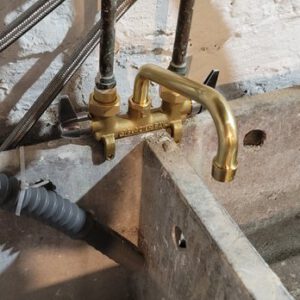Plumbers install and repair pipes that transport water, gas, sewage, irrigation and other materials. They also design and inspect plumbing systems and perform diagnostics to make sure they comply with regulatory codes.
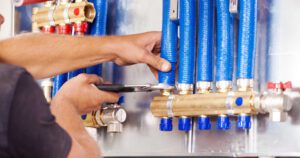
Plumbers often need to be physically strong and able to work in cramped spaces. They also need to be able to use a variety of tools and equipment, including power tools and cranes.
Plumbing is a vital part of a home or business, but it can be difficult to maintain. This is where a plumber comes in, who installs and repairs pipes.
The process of installing and repairing pipes involves specific knowledge of industry standardized measurements, construction codes, and specialized components that are designed for the specific purposes of each system. It’s also important to know your local plumbing codes and regulations, as well as the appropriate material for each type of pipe.
If you’re in need of a major plumbing repair, the best way to finance your project is through a personal loan, which is available from most banks and lenders. These loans typically have lower interest rates than traditional home equity lines of credit, and they can be approved quickly.
For more minor repairs, such as fixing a leaky faucet or toilet, you can use rubber or silicone tape to seal the problem. This product is made in a roll and can be wrapped around the pipe where it needs to be repaired.
A more permanent solution is to replace the broken or damaged section of pipe. This is especially important if the old pipe was PVC, as it may not be compatible with newer materials and fittings.
In the case of a broken water line, you can find a shutoff valve near your house’s water meter that allows you to turn off the entire line. This is important for a number of reasons, including protecting your home from water damage, keeping you from having to pay for water and helping you avoid having to use an expensive professional.
To prevent the issue from reoccurring, be sure to check for any cracks in your pipes and repair them as soon as they appear. To do this, clean the crack and apply a thick, heavy-duty, self-sticking rubber or silicone repair tape to the area. Once the tape is in place, tightly tighten a pair of worm-gear hose clamps over the pipe and patch to secure it.
In addition to repairing or replacing the damaged plumbing, a plumber will also perform inspections of the entire system and make adjustments when needed. This includes checking for leaks and corrosion, as well as making sure that all the piping is in good working order.
Plumbing is a complex system that requires constant attention to keep it working properly. This includes knowing how to troubleshoot problems and when it’s time to call a plumber.
Homeowners who know how to do this save money by identifying minor issues before they turn into bigger and more expensive repairs. Some common plumbing problems include clogged drains, low water pressure, leaky pipes and faucets, and running toilets.
Detecting plumbing problems is not difficult if you have the right tools and knowledge. You can inspect for moisture problems such as mildew and mold, darkened surfaces, or puddles of water below leaks. You can also use a flashlight to follow the path of exposed pipes and run your fingertips along them to feel for wetness.
Once you know what the problem is, you need to determine its cause. This is important for both the customer and the technician because it will help them understand what to do next.
The best troubleshooters are able to identify the source of the issue quickly. This can be done through a variety of methods, including researching knowledge bases, digging into old help desk tickets, or searching the web for information about similar issues that have been resolved.
You can also create a checklist that will help you keep track of the steps you take. This will also help you make sure you’re following the correct process to avoid mistakes.




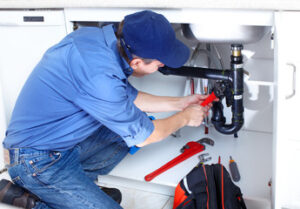

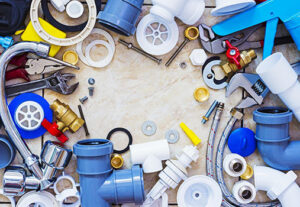
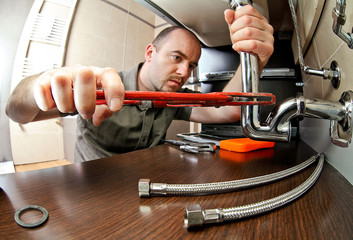


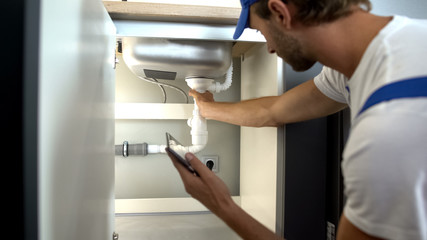
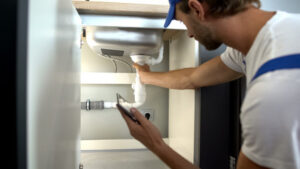 Many types of plumbing can be employed for residential and commercial purposes. Plumbing technicians can install and maintain these fixtures, from sinks to bathtubs. In addition, plumbing can include sanitary and storm drainage systems, water-softening equipment, and venting systems. Plumbing professionals
Many types of plumbing can be employed for residential and commercial purposes. Plumbing technicians can install and maintain these fixtures, from sinks to bathtubs. In addition, plumbing can include sanitary and storm drainage systems, water-softening equipment, and venting systems. Plumbing professionals 

